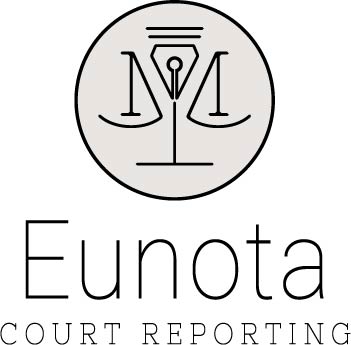What’s the Difference Between a Typist, Transcriptionist, Stenographer, and Court Reporter?
Introduction to Court Reporting Roles
The differences between typists, transcriptionists, stenographers, and court reporters are often confused with the terms being used interchangeably. These jobs sound similar, but there are key differences in each that you should know before you begin your search for legal administrative help. Here’s what you need to know about each:
Typist
A typist is a person who can type faster than the average person. Their job duties are pretty broad and can include things like email correspondence and general admin work. Because computers and typing are a common part of everyday life now, typing as a profession has dwindled and has generally been added to roles that include more complex tasks like correspondence, filing, bookkeeping, and other general administrative roles (think secretaries).
Transcriptionist
A transcriptionist is a person who types from a specific recording. These recordings may be made available from a meeting, discovery, arbitration, conference, hearing, or any other type of meeting that requires a verbatim record of what transpired. Transcriptionists can be found in the medical, legal, or academic fields, and should possess field-specific knowledge to ensure that their transcripts include the proper terminology. In New Brunswick, transcriptionists must be certified by the Minister of Justice in order to produce official transcripts for use in the courts. In Moncton, this is especially important as the city has two official languages: French and English. Your transcriptionist must be certified in the language of the transcript you are requesting to be produced for use in a courtroom in New Brunswick.
Stenographer
A stenographer is a person who produces a record of a meeting in real-time. In New Brunswick, stenographers in the private sector usually use handwritten notes to keep a general timeline of meeting events, undertakings, breaks, and marked exhibits, then later produce a summary report to send to the involved parties. Verbatim reports are only available if the person was hired to provide an official transcript. A stenographer is helpful because they can help the participants stay on the same page by fact-checking statements in real-time by an unbiased third-party present at the meeting.
Court Reporter
In New Brunswick, a private sector court reporter is generally a mix of a transcriptionist, stenographer, and audio recording professionals in the legal field. They are most often hired to record meetings, and perform the duties of a stenographer and sometimes transcriptionist if a transcript is requested. Court reporters are often bilingual and have a broad arsenal of training and certifications to ensure that every need is covered (e.g., many are Commissioners of Oaths).
Now that you understand the general differences in these job roles, it’s important to identify your needs clearly before hiring someone to ensure that you receive the results you are looking for. There are currently no regulations for having these titles, so make sure that before you hire someone, you ensure they possess the right credentials for your needs.
Got Questions?
Eunota Court Reporting is here to help you better understand the court reporting industry. If you have had a chance to review our blog articles and still have questions please do not hesitate to reach out!

